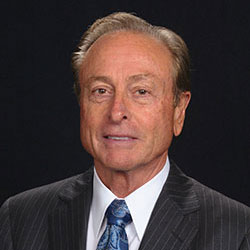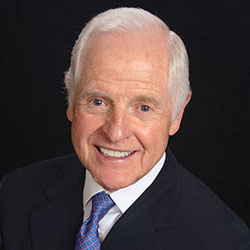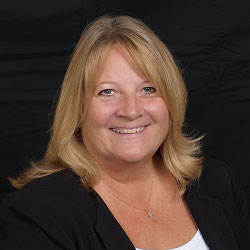
SERVICES
- MCM provides Underwriting OR
- MCM provides Financial Advisory and Analysis
SOLUTIONS
- MCM provides 100% project financing
- MCM's experience can answer challenging financing questions
Who may participate?
Typically any Charter School who has been in existence for a minimum of two (2) years that has audited financial reports.
What financing needs are eligible for our tax-exempt financing Program?
Our Program is designed to provide low cost, tax-exempt financing to purchase or renovate facilities, acquire major equipment, or to refinance existing real
estate loans and mortgages that may be outstanding at a higher interest rate.
Can improvements to capital leases and working capital be covered in the Program?
Yes, improvements to capital leases can be covered under the Program under certain circumstances. Working capital may be borrowed only in conjunction with
the purchase of real property.
Is separate construction financing necessary?
No, our Program acts as “project financing” covering both the construction period financing and the long-term, take-out financing. Monthly
draws to architects, contractors and suppliers are made through a simple draw request.
What will be the estimated rate of interest?
The actual interest rate will be dependent on market conditions at the time the securities are sold, and the credit strength of the Charter School, so it is
difficult to predict exact interest rates until these variables are known, except to say that tax-exempt rates are typically 20 to 30% less than traditional
bank financing. It is also important to note that this is a fixed rate for the life of the loan, not a floating or variable rate.
At what point is the interest rate confirmed?
At the time the securities are sold. While our team of professionals will make a good faith estimate for, the final rate on the securities is not known until
the securities are sold.
What percent of project costs can be financed through the Program?
Generally, 100% of project costs can be financed.
Is there a minimum size loan that is necessary for participation in this Program?
Yes, the minimum loan is $1,000,000. Anything less will cause the savings realized through using tax-exempt securities to be sacrificed.
Is there a maximum loan that a Charter School may receive?
There is no limit to the size of the loan that Charter School may obtain, other than the practical limit of the Charter School’s ability to repay the debt.
For how long can money be borrowed?
Loans can be any length from five years to twenty five years. Our Program structures the term of the financing to fit the needs of the Charter School.
Will there be any up-front costs associated with this Program?
No, all costs and fees associated with the financing are paid for out of the proceeds of the financing.
What are the anticipated costs of issuance through this Program?
Costs of issuance are a function of the total size of the financing, but at this time the total costs are estimated to be between 4.0% and 4.5% of the loan
amount (these costs are paid at closing from the proceeds of the financing).
Are there any on-going fees related to the Program?
Yes. The Trustee will charge a nominal on-going fee for serving in that capacity.
When will money be available to the Charter School?
Our Program will take between two to four months to assemble and market. Money is available to the Charter School immediately after the closing on the
securities.
How and where does the Charter School make payments on its loan through the Program?
The Charter School will make monthly payments to the Trustee bank just as if it were making a monthly mortgage payment.
What security is required by the financing?
Our Program requires several covenants within the security provisions, but the primary security will be a first mortgage on the facility being financed, and a
first (though not exclusive) lien on revenues of the Charter School. Borrowing money in this Program will not prevent you from borrowing additional funds as
long as the Charter School can meet a reasonable “look back – look forward” debt service coverage test.
How does the “debt service reserve” fund work?
The debt service reserve (DSR) account will be funded with financing proceeds at closing. The purpose of the fund is to assure the investors that their
payments will be made on time. The DSR will be available to the Charter School only in a serious cash flow situation that would put the Charter School in
default. In this case, the DSR would be used to pay the investors while the Charter School catches up on their monthly payments. The money in the DSR
belongs to the Charter School when the debt has been paid off, and most borrowers will use the cash to help pay the last payment. Additionally, the
semiannual interest payments earned by the investment of the DSR will be used to lower the monthly payments.
Who handles the construction bids and selection of builders?
The Charter School is responsible for selection of contractors, engineers and architects, just as if one was paying cash for the project.
Will you have to have the property appraised and if so, when?
If you are acquiring an existing facility or land, it will need to be appraised by an MAI appraiser. You will not be required to have the appraisal at the time
you make application for participation in the Program; but having the appraisal ahead of time will help in determining how much money you will need to borrow.
What if a project is delayed for six months or a year?
As soon as the financing is closed, the Charter School becomes liable for of the debt. In a situation where a construction project or an acquisition is
delayed, communication should be made with the Trustee Bank and the Investment Banker as soon as possible so that interest earnings on the construction money may be credited to the monthly payment. This will lower the monthly payment as low as possible until the Charter School is able to proceed with its project.
What if a project falls through completely?
The Charter School must be fairly certain that its project will go through. If everything falls through, the Charter School will be able to prepay the
financing; however, it should be noted that there will be a cost to the Charter School based on the cost of issuance of the financing related to its project.
What is the advantage to this Program?
The securities that are sold to raise money for the loan are tax-exempt. This means that the interest rate will be about 20% to 30% lower than conventional
bank financing and our Program offers 100% financing, thus preserving the Charter School’s fund balance.
Who buys these securities, and why would they buy them at these low interest rates?
Individual investors, as well as institutional investors, are willing to buy these securities because of their tax-exempt status. This feature allows the investors to not have to pay income tax on the interest earnings. With over $410,000,000 of Charter School financing completed by our team of professionals, our Program is well received by the investment community.
Select List of Projects Financed
Municipal Capital Markets Group, Inc. is one of the Nation’s leading providers of facility financing to charter schools. Our experienced investment bankers have provided in excess of $410,000,000 of facility financing to 78 charter schools. See below for a sampling of projects our team has completed.
| Amount | Type* | School | Location |
| $15,290,000 | COP | Landmark Academy | Kimball, MI |
| $6,115,000 | COP | Cesar Chavez Academy | Detroit, MI |
| $3,010,000 | COP | Merritt Academy | New Haven, MI |
| $3,620,000 | COP | William C. Abney Academy | Grand Rapids, MI |
| $2,630,000 | COP | Star International Academy | Dearborn Heights, MI |
| $8,275,000 | COP | Global Concepts Charter School | Buffalo, NY |
| $21,940,000 | COP | Charter School for Applied Technology | Buffalo, NY |
| $10,615,000 | COP | Derrick Thomas Academy | Kansas City, MO |
| $4,770,000 | COP | Allen Village School | Kansas City, MO |
| $9,220,000 | COP | The Renaissance Academy | Phoenixville, PA |
| $2,830,000 | EFRB | Katy Creative Arts | Katy, TX |
| $6,600,000 | EFRB | Central New York Charter School | Syracuse, NY |
* COP – Certificates of Participation
* EFRB – Educational Facility Revenue Bond






